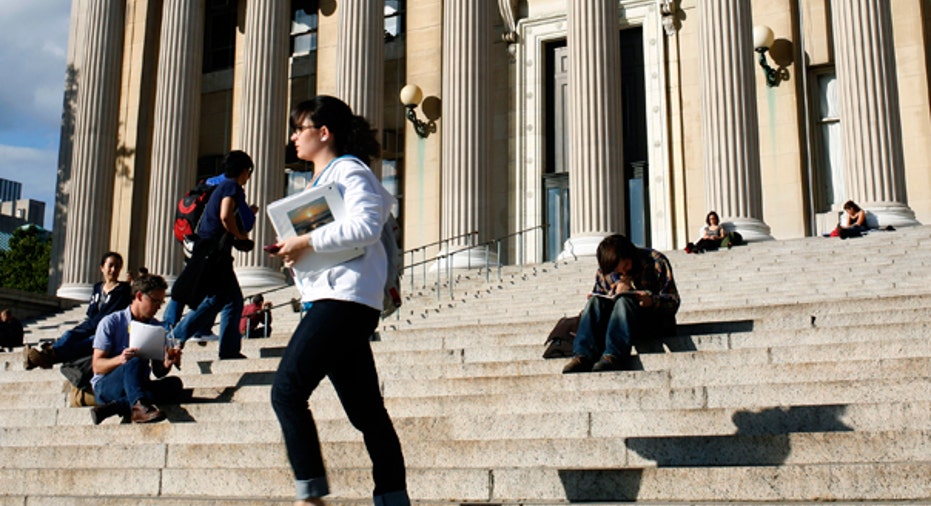Student With no Job Denied Credit

Dear Opening Credits,
I am a 22-year-old medical student. I opened a Capital One student card in August of last year to start building my credit. So far it seems to be a slow and tedious process, especially since it is very easy to reach my $500 credit limit before the end of the month. I pay off the entire balance every month and sometimes twice a month.
I am interested in opening an Amazon credit card because I make most of my purchases from the online store and really want the rewards. Plus, I will only purchase what I know I can pay off. But Amazon rejected my application on the grounds of, "a small length of time account has been established, too few accounts currently paid as agreed, and proportion of loan balances to loan amount too high."
I can understand why it has not been long enough since I opened my last card, but when will it be long enough? And as for my student loan, I am a medical student and this loan will be shadowing me for a very long time as it is my major source of income at this point. Will it always prevent me from opening another credit line? Is there something I can do to improve my chances for being approved for a new credit card to build my credit?
- Meredith
Dear Meredith,
It's true that establishing a robust credit profile is not a swift process. Prospective lenders will assess your credit reports and credit scores to determine if it would be wise to do business with you. In general, they like to see that you've borrowed and repaid money responsibly for at least a year and preferably much longer than that.
Delays can be frustrating when you're eager to get that higher limit card. Think of a credit rating as you would the reputation of a surgeon, anesthesiologist or any other medical professional. To gain trust, a doctor will need to perform specific procedures many times and under a variety of circumstances. A few months' training won't be sufficient to give anyone adequate assurance.
The good news is that you're already in the "residency" period of credit establishment. You have an account and, though the credit line is small, you use it regularly and correctly. All activity is appearing on your credit reports and since credit scores are derived from that information, it's creating a healthy rating. You may not be feeling the positive effects just yet, but keep up the good work.
FICO scores give greater weight to some actions than others. Always paying by the due date is crucial, as that comprises 35% of a score. Maintaining low balances is the next most vital, at 30%. Length of credit history is 15%, so simply having and using your card is working in your favor. The last two factors -- types of credit used and new credit inquiries -- are minor, at 10% each. Applying for many loans and credit lines in a short period of time appears desperate, so keep inquiries to a minimum.
Amazon turned you down for its credit card not just because you're a credit newbie and haven't built a high enough score yet, but also probably because you're not working and are already financially overextended. It sounds like you've been using student loans as your primary income source. While you've been able to cover your expenses with them, a credit card company may not consider that money as regular income. Rather than earning the cash, you're borrowing it.
So how do you overcome these problems? Wait. Once you gain employment and the paychecks start flowing, you'll be in a far better position to be approved for that Amazon card. Your FICO scores will rise with continued, excellent credit activity, which includes repaying your student loans.
In the meantime, if you want broader borrowing power, ask your current credit card company for a limit increase. Consider it your first patient. If you do well, others will follow.
See related: FICO's 5 factors: The components of a FICO credit score, Know where you stand before you apply for new credit



















